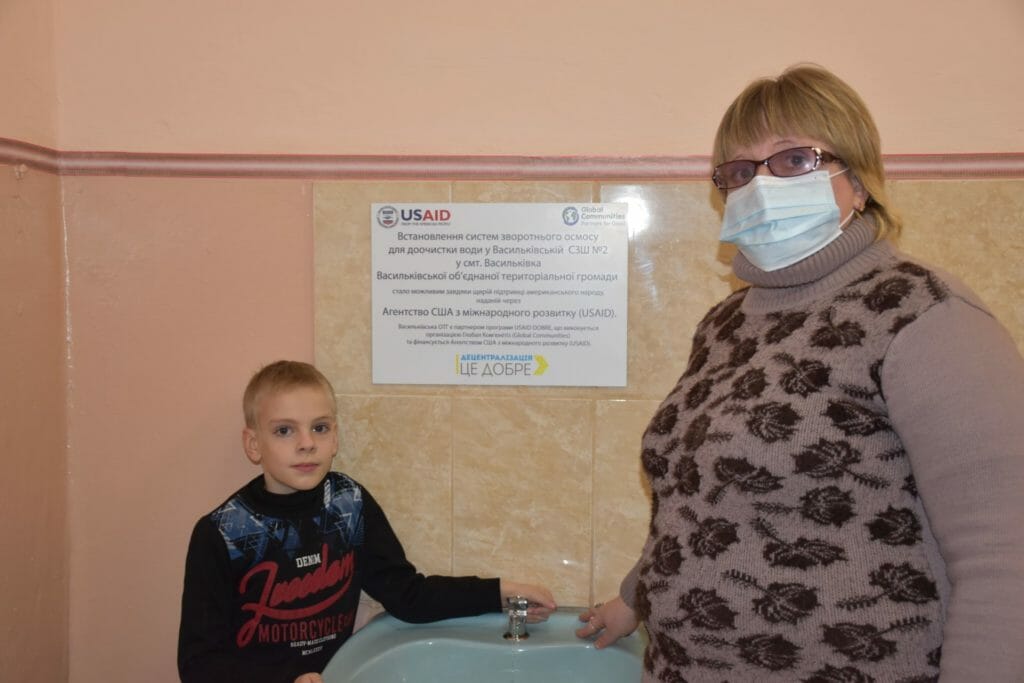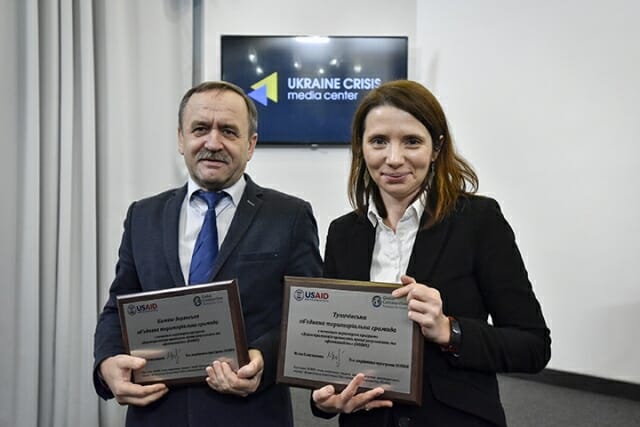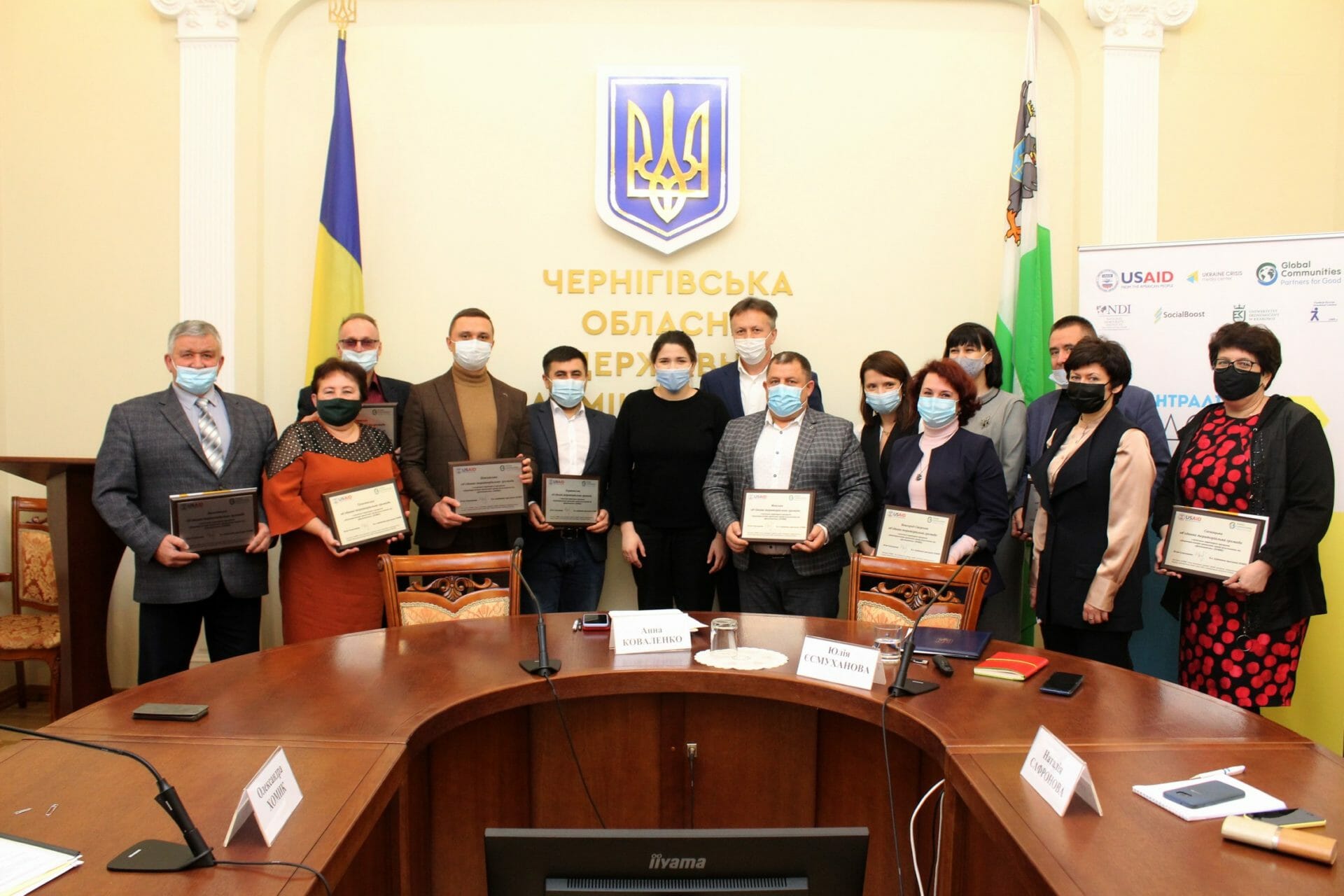Decentralization reforms in Ukraine produced sweeping changes impacting every citizen in the country. These reforms marked a transformative shift that required local governments, including in villages and rural settlements, to take on significant new responsibilities. As these municipalities work to effectively manage resources and deliver better services to citizens, new opportunities for responsive governance and community collaboration are driving innovations from the ground up.
Delivering municipal services that work for citizens – from health facilities to garbage collection to IT infrastructure – is the task of newly created Consolidated Communities across Ukraine.
Increasing the quality of their public services stimulates local economies and promotes the development of strong, cohesive communities, working together toward common goals.
Consolidated Communities face the full range of challenges of local government – from strategic planning to budgeting and financial management. Earning the trust of citizens requires strong anti-corruption, transparency and monitoring mechanisms, as well as broad participation from all sectors of society. When citizens are actively engaged in setting priorities and advancing development, government processes become more open and inclusive, integrating the needs of all members of the community into a shared vision for the future.
Combatting Corruption at the Community Level
The Ukrainian Communities Countering Corruption Together project, supported by the U.S. Department of State, Bureau of Democracy, Human Rights and Labor, aims to reduce corruption at the community level, with a focus on enabling improved services in healthcare and education as the two key sectors of citizen concern in the incidence and prevalence of corruption. Working with 19 Consolidated Communities in 13 Oblasts, the project's approach is based on the idea that rather than creating more bureaucracy and red tape, anti-corruption tools should be integrated directly into existing structures for efficiency and efficacy. Under this project, communities have developed and launched anti-corruption programs and tools such as public councils and citizen budgets to increase transparency, openness, and accessibility between government and citizens.
Strengthening Local Governance and Citizen Engagement
Global Communities leads an international consortium of American, Ukrainian and Polish organizations to implement the program Decentralization Offering Better Results and Efficiency (DOBRE) across Ukraine, funded by the United States Agency for International Development (USAID). USAID DOBRE works in 100 Consolidated Communities in 10 Oblasts of Ukraine. DOBRE strengthens local governance to deepen democracy, improve conditions for development of communities, promote gender equality and women’s empowerment, and enhance economic sustainability. The program builds the capacity of local governments to more effectively manage resources and deliver services that respond to community priorities, as well as improving citizen engagement and oversight of local governance.
As the leader of the DOBRE Consortium, Global Communities is proud to work with the following implementing partners:
- Poland’s Foundation in Support of Local Democracy (FSLD) provides technical expertise from the Polish experience in strategic planning, service provision and participatory budgeting.
- The Malopolska School of Public Administration at the Krakow University of Economics (MSAP/UEK) helps strengthen educational and professional development opportunities in public administration.
- The National Democratic Institute (NDI) elevates gender equity and promoting women’s empowerment in DOBRE activities.
- SocialBoost promotes innovative and demand-driven information communications and technology solutions for inclusive and participatory local governance.
- The Ukrainian Crisis Media Center (UCMC) leads a robust communications strategy that strengthens public awareness of the benefits of decentralization, trains stakeholders in effective communications, and maximizes dissemination of results achieved by Consolidated Communities and the DOBRE program.
Bashtanga Amalgamated Community: A Success Story
536
Alumnae of Women Leadership Academy
77
Youth projects implemented
73
Local economic development projects implemented
Our Work in Ukraine
Governance
Strengthening Civil Society, Democracy and Responsive Government
Sustainable Development
Standing with Communities as They Shape Their Own Future
Resources
Briefs & Case Studies
CVCFG: ASGM Logistics in Eastern DRC Learning Brief
USAID’s Commercially Viable Conflict-Free Gold (CVCFG) Project, known locally as “Zahabu Safi” is a five-year project, implemented in the Democratic Republic of the Congo (DRC) by Global Communities and Levin Sources. The project is designed to build on recent successes achieved by donor-funded initiatives to export responsibly sourced gold to jewelry buyers in North America…
Briefs & Case Studies
Program Brief: USDA Chakula Chetu Local and Regional Food Aid Procurement Program in Tanzania
In 2017, USDA funded a Local and Regional Food Aid Procurement (LRP) program, called Chakula Chetu, meaning Our Food in Swahili. Chakula Chetu complements Project Concern International (PCI), a Global Communities Partner’s McGovern-Dole program in Tanzania, FFE III. Emphasizing local capacity strengthening to promote long-term ownership and sustainability, Chakula Chetu delivers a cost-effective and timely…
Research & Publications
An Infant Carrier Intervention and Breastfeeding Duration: A Randomized Controlled Trial
Emily E. Little, PhD, CLEC, Camille C. Cioffi, PhD, Lisa Bain, MPH, Cristine H. Legare, PhD, Jennifer Hahn-Holbrook, PhD OBJECTIVES: Parent-infant skin-to-skin contact immediately after birth increases initiation and abstract duration of bodyfeeding. We hypothesized that providing ergonomic carriers to parents during pregnancy would increase the likelihood of breastfeeding and expressed human milk feeding through…
Briefs & Case Studies
Improving Key Water, Sanitation and Hygiene Practices in Ghana Through A Behavior-Led Approach
Years of effort and focus by the Government of Ghana and its partners have yielded significant improvements in the country’s child morbidity and mortality rates. Still, every year, at least 4,000 Ghanaian children die from diarrhea, and 23% experience chronic malnutrition linked to poor water and sanitation.(1) To help improve these numbers, USAID funded the…
Toolkits & Manuals
Guía Metológica para Análisis de Rumores sobre COVID-19
El abordaje metodológico y analítico sobre rumores constituye la base fundamental que proporcionará la información y resultados necesarios para la erradicación efectiva de rumores prevalentes sobre COVID-19. La presente guía describe los pasos metodológicos a seguir, tanto para el análisis de datos como para la formulación de los mensajes antirumores.
NEWS
Latest stories from the blog

Vasylkivska Consolidated Community Improves Access to Quality Drinking Water in Educational Establishments
Many of the 56 individual communities in Ukraine’s Vasylkivska Consolidated Community, Dnipropetrovsk Oblast lacked access to clean water. The population of about 23,000 had only one village acting as …
Read More
Slobozhanska CC Strategy: European Practice for Local Waste Sorting
Efficient, affordable handling of waste management is a critical concern in Ukraine. Residents of Slobozhanska consolidated community decided not to wait for government guidance and …
Read More
USAID DOBRE in Ukraine Announces 25 New Consolidated Communities
On December 22, the USAID Decentralization Offering Better Results and Efficiency (DOBRE) program, in partnership with the Ministry of Communities and Territorial Development of Ukraine …
Read More
Consolidated Communities Paving their Way to Medium-Term Budget Planning Implementation
In Ukraine for quite some time, activities have been carried out aimed at improving legislation provision for medium-term budget planning at the state and local …
Read More

